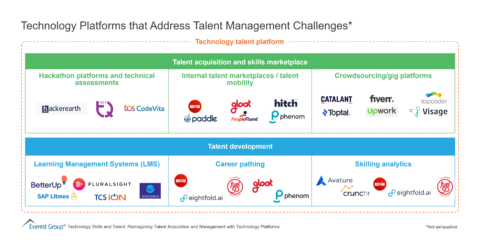Filter
Displaying 21-30 of 40
Planning for a Recession: Is the War for Tech Talent Finally Over? | Webinar
On-demand Webinar
1 hour
Top Strategies for Creating an Employee-focused Digital Workplace | Webinar
On-demand Webinar
1 hour
Why Inclusivity is Essential in Building Your Tech Talent Workforce | LinkedIn Live
On-Demand LinkedIn Live
1 hour
5 Success-driving Actions IT Workforce Leaders Need in 2022 | Webinar
On-demand Webinar
1 hour









